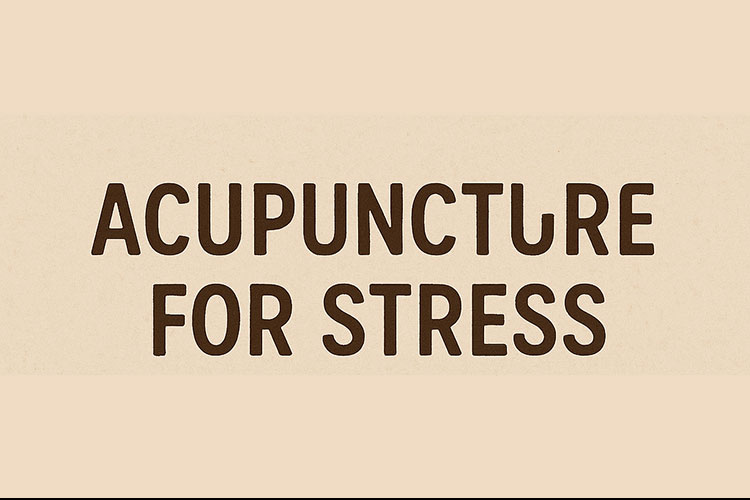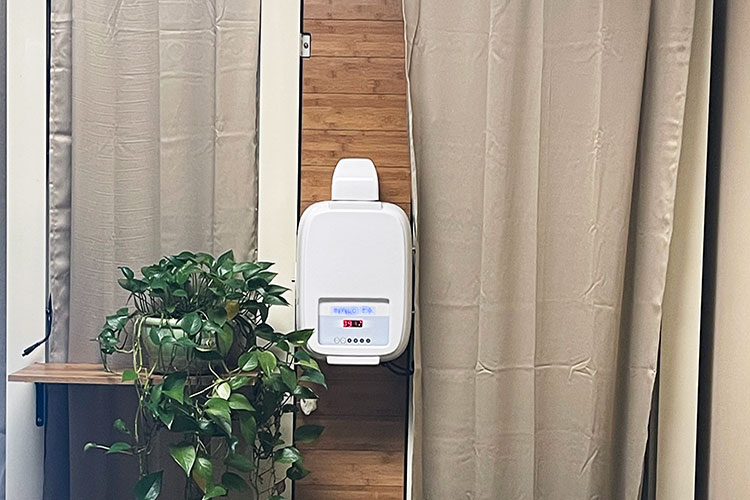Dr. Tatyana's Health and Wellness Blog
Treating the whole person to restore optimal health. Check back often for up-to-date news and information about acupunture and Chinese medicine.
Most Recent Posts ...
Posted on: 5/12/2025
Posted on: 4/28/2025
Posted on: 4/14/2025
Posted on: 3/31/2025
Search All Blog Posts
Blog Post Archive Categories
- Breathe Easier and Feel Better: The Benefits of Salt Room Therapy
- The Hidden Toll of Alcohol: How It Disrupts Sleep, Triggers Anxiety, and Leads to Dependence
- Why Working with a Qualified Medical Professional is Essential for Weight Loss
- How Acupuncture Can Help Reduce Fear and Anxiety Caused by Stress
- Boosting Metabolism During Menopause: How Acupuncture Can Help
- The Science Behind Acupuncture: How It Works and What Happens in Your Body
- The Hidden Dangers of Overusing Supplements: Are You Taking More Than You Should?
- The Importance of Exercise and How to Stay Motivated for a Healthier You
- The Power Trio: Vitamin D3, Omega-3, and Probiotics - Essential Daily Benefits
What is Hypnotherapy
 You’ve probably heard about hypnotherapy’s amazing results and benefits, although many don’t believe what they hear and are quite skeptical about the information. In today’s modern world, skepticism is a common reaction to any treatment that’s not fast acting. Based on my practical experiences, I find that this disbelief is due to a lack of knowledge about what hypnotherapy is, how it works, who can perform it, and how it can benefit you. Let’s clarify some aspects of hypnotherapy by discussing in greater depth.
You’ve probably heard about hypnotherapy’s amazing results and benefits, although many don’t believe what they hear and are quite skeptical about the information. In today’s modern world, skepticism is a common reaction to any treatment that’s not fast acting. Based on my practical experiences, I find that this disbelief is due to a lack of knowledge about what hypnotherapy is, how it works, who can perform it, and how it can benefit you. Let’s clarify some aspects of hypnotherapy by discussing in greater depth.
Hypnotherapy is guided hypnosis, or a trance-like, altered state of focus, awareness, and concentration that is achieved with the help of a certified hypnotherapist. This trance-like state feels like being completely absorbed in a book, movie, music, or even one's own thoughts or meditations. When in this state, clients can turn their attention completely inward to find and utilize the natural resources deep within themselves that can help them make changes or regain control in certain areas of their lives.
What is Hypnotherapy Used For
Research suggests that hypnosis may provide a wide range of benefits for a multitude of psychological, physical, and behavioral issues. Hypnotherapy is a safe and alternative modality that can be used to help address a variety of conditions, such as posttraumatic stress disorder(PTSD), weight loss, relationships, work conflicts, uncontrolled anger, fears, phobias, anxiety, insomnia and sleep disorders, addictions, depression, chronic pain, emotional grief, bad habits, communication problems, and low self-confidence. Hypnotherapy aims to find the root or beginning of the issue or problem and find answers to resolve it with a positive outcome.
Who Can Practice and Provide Hypnotherapy?
Trained and certified hypnotherapists, counselors, and psychologists can administer hypnosis to individuals.
What Happens During a Hypnotherapy Session?
There is no standard session, protocol, or script used for all clients. All sessions are client centered and will depend of the individual’s issues to address. My goal as a practitioner is to find the right approach for each patient in order to deliver the best outcome. The duration of each session is determined case by case and can vary from 60 minutes to two hours. The number of sessions required is also based on individual needs. In most cases, patients report positive results after the first session.
During the first session, the patient will complete a questionnaire to identify the goals they want to achieve. A comfortable bed or chair is used so the patient does not feel restless, which would impact the session. The practitioner uses special scripts (based on neurolinguistic concepts) to help the patient achieve an induction to deep relaxation. For example, during a session, as the patient relaxes, it allows for the analysis and exploration of problems on a subconsciousness level in order to retrieve repressed memories or explain past traumatic events. With guided help from the practitioner, the patient can find key solutions for existing problems. After the session, the patient will remember everything and have complete recall.
The following references can be useful if you are interested in reading more about the benefits of hypnotherapy.
Yours,
Dr. Tatyana Johnson
References:
National Center for Complementary and Integrative Health. (2017). Complementary health approaches for smoking cessation.
Aurora, R.N., Zak, R.S., Auerbach, S. H., Casey, K. R., Chowdhuri, S., Karippot, A., Maganti, R. K., Ramar, K., Kristo, D. A., Bista, S. R., Lamm, C.I., & Morgenthaler, T. I. (2010).Best practice guide for the treatment of nightmare disorder in adults. Journal of Clinical Sleep Medicine, 6(4), 389-401.
Amatya, B., Young, J., & Khan, F. (2018). Non-pharmacological interventions for chronic pain in multiple sclerosis. Cochrane Database Syst, 12.
Vos, H., & Louw, D. (2009). Hypnosis-induced mental training programs as a strategy to improve the self-concept of students. Higher Education, 57(2), 141–154.
Hague, M., & Mabbutt, P. S. (2013). Hypnosis within a therapeutic framework. Healthcare Counselling & Psychotherapy Journal, 13(2), 24–26.
Duff, S. C., & Nightingale, D. J. (2006). Long-term outcomes of hypnosis in changing the quality of life in patients with dementia. European Journal of Clinical Hypnosis, 7(1), 2–8.




